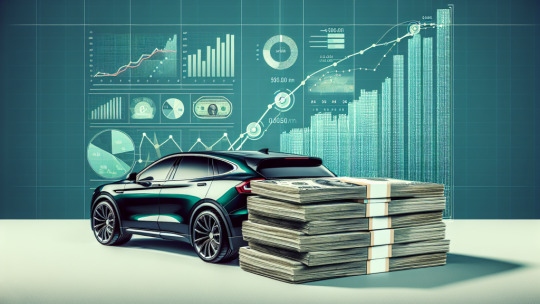#CarOwnershipTips
Explore tagged Tumblr posts
Text
How To Find My Vin Number Without My Car
Having trouble finding your car's VIN number? Don't worry, we've got you covered! Check out our latest blog post on 'How To Find My Vin Number Without My Car' and never lose track of your vehicle's unique identification number again. From online databases to registration documents, we've compiled a list of easy ways to locate it.
#FindMyVinWithoutCar#VinNumberSearch#VehicleIdentificationNumber#VINDecoderTools#CarOwnershipTips#VINLookupTutorial#AutomotiveKnowledge#VinFormatExplained#CheckVehicleHistory#YearlyModels#TowEngine#TowEngine.com#Bernard#BernardParker#Happy driving!#VINnumber#cars#identification#keeptrack#easysteps
0 notes
Text
The Financial Side of Driving: Budgeting for Car Ownership

Owning a car offers convenience and independence, but it's also a long-term financial commitment. Many first-time drivers focus primarily on the purchase price without considering the ongoing and sometimes hidden expenses that come with car ownership. Proper budgeting is key to ensuring your vehicle remains a source of freedom—not financial stress.
Maintenance and repairs are among theare among the most commonly overlooked costs. Routine services like oil changes, tire rotations, and brake replacements are essential for safe and efficient driving. But unexpected repairs—from a failing transmission to electrical issues—can easily disrupt your monthly budget. Setting aside a maintenance fund helps prepare for these inevitable costs.
Insurance premiums can vary widely depending on your age, driving history, location, and the type of car you own. For new drivers or those in high-risk categories, rates can be significantly higher. Shopping around, comparing providers, and exploring discounts (like for winter tires or driver training) can lower your overall insurance costs.
Fuel consumption is another critical expense. Larger vehicles or those with older engines often have poor mileage, leading to higher fuel bills over time. If you drive frequently, consider choosing a car with good fuel efficiency or even exploring hybrid and electric options, which can offer long-term savings despite a higher upfront price.
Then there's parking — a daily cost that adds up quickly in urban areas. Monthly parking passes, metered spots, or even fines for expired meters should be factored into your budget. If you live in a city, you may also need to consider the availability of parking when deciding where to live or work.
Depreciation , the drop in your car's value over time, is one of the largest financial impacts of ownership. New cars lose value quickly—often 20–30% in the first year alone. If you're financing a car, this can put you in a negative equity situation, where you owe more than the car is worth. Choosing a well-maintained used vehicle can mitigate depreciation.
Budgeting should also include registration fees, licensing costs, and emissions testing where applicable. These recurring charges vary by province but can be a surprise for new drivers. Keeping track of renewal dates and setting reminders ensures you stay legal and avoid penalties.
Being financially prepared enhances your overall driving experience and helps you avoid costly mistakes. Whether you're a new or experienced driver, the key is planning ahead. For reliable guidance on licensing, testing, and road readiness, visit licenseprep.ca . Their resources are tailored for Canadians navigating every step of the driving journey.
#CarBudgeting #DrivingCosts #CarOwnershipTips #LicensePrep #NewDriversCanada #VehicleExpenses #DrivingInCanada #licenseprep
0 notes